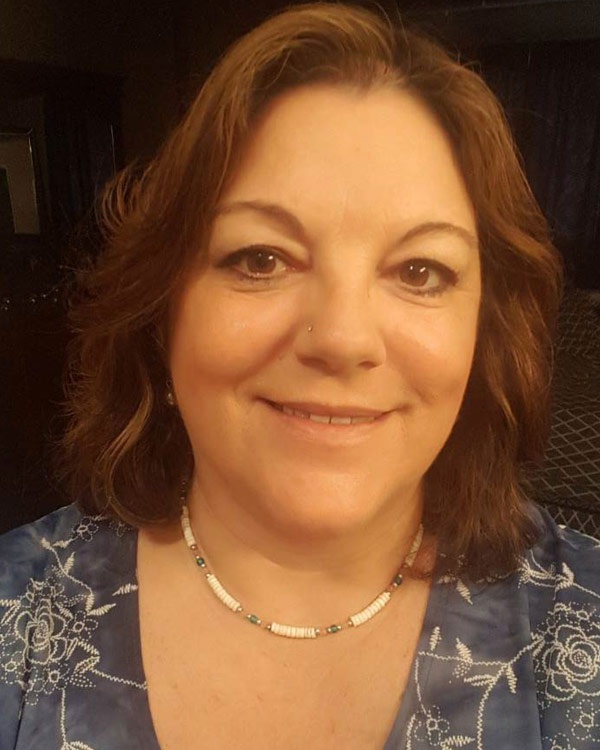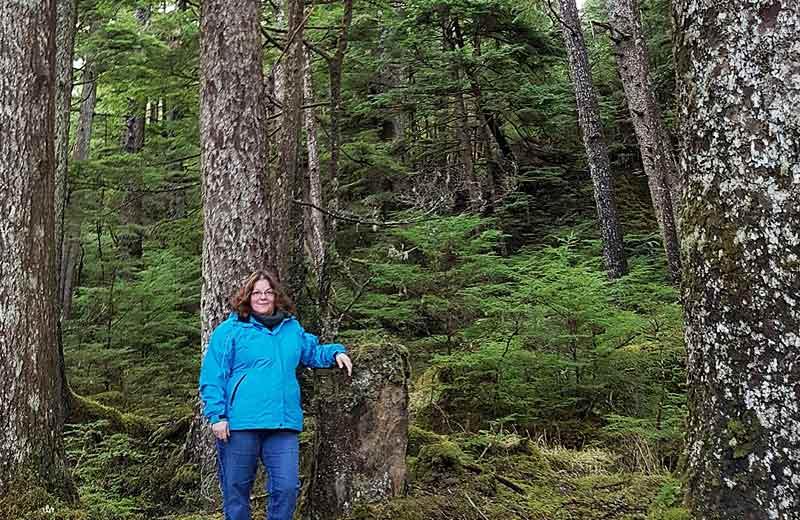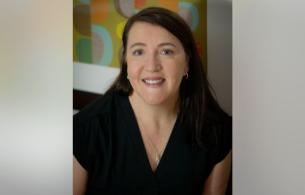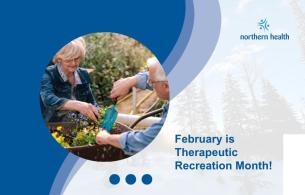The World Health Organization has designated 2020 the International Year of the Nurse and the Midwife.
As part of this year-long celebration, Northern Health will be highlighting a different nurse or midwife each month. For February, we interviewed Michelle Simpson, a primary care team lead for the health care team. She was born and raised in Quesnel, BC and moved to Masset on Haida Gwaii for an adventure!
Where do you live, and what do you like about it?
"I live in Masset on the island of Haida Gwaii, and I like everything about it! The island is beautiful, calm, peaceful, and relaxing. I love being able to look out my window and see the ocean, both at work and at home.
"The community is small and tight knit – everybody knows everybody. And your coworkers aren’t just your coworkers, they’re your friends as well, who you spend time with after work."
Tell us about your nursing experience and role(s).
"I started working as a long-term care nurse in 2010 at Dunrovin Park Lodge in Quesnel. I worked as a nurse in long-term care for seven years before wanting to move into acute care [hospital] nursing.
"I wanted to try nursing in a rural and remote area and saw a posting for a one-year relief position in Masset. I was successful in getting the position, so, in 2017, I moved there without even first visiting the community!
"My plan was to only stay for the one year, but I loved the job – I was able to do acute, long-term care, and emergency room nursing all in the same shift. In the end, I decided to stay here and successfully bid into a permanent floor nurse position.
"In March 2018, I moved to a nurse manager position, and then in August 2019, I moved into my current role as team lead."
What do you like about your role?
"I love being in a leadership role. I like that I use a lot of critical thinking skills. For example, how to transfer patients off the island, and how to care for people with limited resources. The community is so small, so you have to work closely with everyone to come up with solutions – your hand is in every different piece of the puzzle in patient care. It’s not just one health care worker providing care for the patient, everyone on the team is involved. We also continuously collaborate with Haida Health Centre which is run by the First Nations Health Authority. Many points of view come together to provide care for one patient, and it’s pretty amazing to watch that happen!"
What impact does your role have on patients?
"In my role, I make sure there’s well-rounded coordination of care for patients. It’s about making sure all the different team members come together to come up with a comprehensive care plan for the patient, and that care is given in the right place.
"If a doctor or a team member have to go to a person’s house to deliver care, they will if that’s what’s needed. People go out of their way here to make sure people are taken care of, even if it means coming up with creative solutions for how to do that.
"I bring all those pieces together to keep things running smoothly day to day."

What has your nursing background taught you?
"For me, nursing isn’t all about medicine; it’s much more complex than that. It’s about taking care of people’s physical health, mental health, social supports, etc., and then taking all of that into consideration to come up with a comprehensive care plan specific to that individual. You need to look at the person holistically – the person isn’t just a diagnosis we’re going to fix. We need to remember that there are many other components to be taken into consideration to make their life better – and sometimes all they just need a little TLC."
What made you want to go into nursing?
"Originally, I never thought I would be a nurse; I wanted to be a teacher. Quesnel (where I grew up) didn’t have a teaching program, but they had a nursing school, so I decided to give it a try.
"Once I started school, I absolutely loved it. Looking back on my life, it makes sense: I’ve always been a caretaker, that’s just my personality. I just didn’t realize it until after going into nursing. The skills ended up coming naturally to me even though I didn’t realize it at the time."
What is one thing about nurses that you wish you could tell everyone?
"I think a lot of people see nurses as people at the bedside giving medications and doing medical procedures. I don't think some people understand that it's not just ‘medical’ stuff that we do. There's so much of yourself that you give to people emotionally, such as empathy and respect. No matter how short or long a patient is in your care, you’ll always form some type of bond with them.
"Nurses give so much of themselves and it's not just a show – they really do care.
"Nursing care is trending towards 'providing care in the right place and ensuring person- and family-centred care.' It’s no longer just the patient who the nurse is taking care of, but the patient’s family as well.
"Nurse’s help patients to maneuver the healthcare system in a way that seems less overwhelming to them. By respecting and acknowledging the patient’s culture, beliefs, and practices, nurses can help to make care happen in the best way that works for their patient."
What drew you to NH?
"I’ve lived in the Northern Health region my entire life, but in 2017, I decided to make a change. I heard about 'living the island life' and wanted to live in a small community, which is how I came to discover Masset.
"I wanted to work in a small facility and I received recommendations from people I knew who said Haida Gwaii would be exactly what I was looking for. The working environment here is amazing – everyone is always so happy!
"The icing on the cake for me was that I no longer had to shovel snow, drive icy roads, or endure -30-degree winters anymore. The island life is the best life!"
Thanks for taking the time to share your story with us, Michelle. We wish every nurse and midwife in the North a happy International Year of the Nurse and Midwife!














Comments